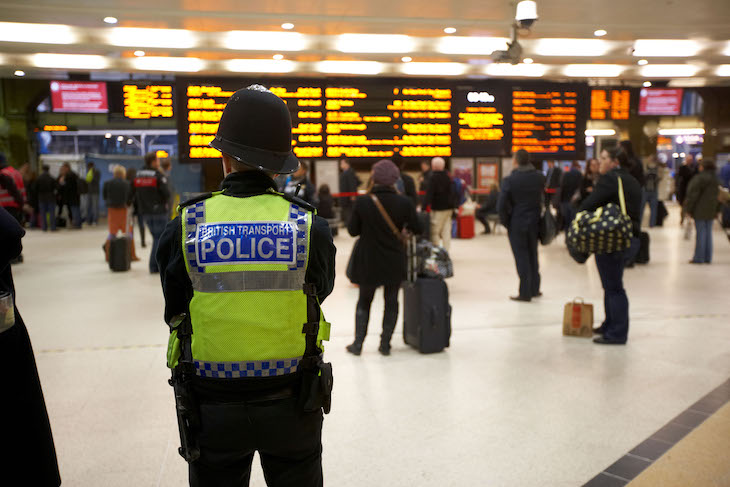What is the British Transport Police playing at? Biologically male officers identifying as female will be allowed to intimately search women so long as they have a gender recognition certificate (GRC). The guidance, which was revealed by the Daily Telegraph, shows that the police aren’t quick to learn lessons when it comes to resolving the question of who should, and shouldn’t, be allowed to search female suspects.
Imagine a vulnerable woman being told that an officer who is male is going to strip search her
The trouble is that, while a GRC allows trans people to have their ‘acquired gender’ legally recognised in the UK, it remains the case that a person cannot change their biological sex. A GRC is a document issued to make things easier for trans people. It doesn’t actually change a person’s sex. And so, whatever a piece of paper might say, a woman being strip-searched by a male officer is unlikely to find it less traumatising because the officer might have ‘acquired’ the legal status of a woman.
The BTP insists that a person being searched ‘can object to being searched by any officer’. But this doesn’t let the police off the hook here.
Strip-searching is, as I wrote earlier this year, a deeply unpleasant and traumatic experience, even when conducted by officers of the same sex. An 18-year-old, who was strip-searched by two female officers in the bathroom of a flat, told me that she felt terrified and violated before going entirely numb. She still carries the trauma of it five years later.
Cathy Larkman, a retired police superintendent and national policing lead for the Women’s Rights Network, told me that ‘strip searching is by its very nature a deeply intrusive and often distressing experience. I know this: I’ve carried out many searches as a police officer.’
Imagine a vulnerable woman being told that an officer who is male is going to strip search her. Whether that person has a GRC doesn’t make this justifiable or any less distressing. While the women might well object to the search, she may be too scared to speak out.
Thankfully, a fightback against this madness is underway. The organisation Sex Matters has sent a pre-action legal letter to the BTP, seeking to bring an end to what they believe is a serious breach of the law. Maya Forstater, CEO of Sex Matters, told me ‘this is state-sponsored sexual assault, using the law which is meant to protect women against them.’ This legal action is welcome. But even a successful court case may not be enough given the police are showing a troubling tendency to push the boundaries.
The reality is that parliament never legislated to change the right to same-sex intimate searching as defined in the Police and Criminal Evidence Act. But that didn’t stop national police guidance being issued earlier this year allowing transgender officers to strip search people of the opposite biological sex.
After that story emerged, the policing minister at the time, Chris Philp, asked the National Police Chiefs’ Council (NPCC) to review this guidance. It was quickly withdrawn.
Sanity, respect for women’s bodily autonomy and the law had prevailed. Or so it seemed. But, in the months since, no comprehensive guidance on this important question has been issued. And the BTP has stepped into the vacuum to adopt a worrying approach to intimate searches. When will the police learn their lesson?






Comments